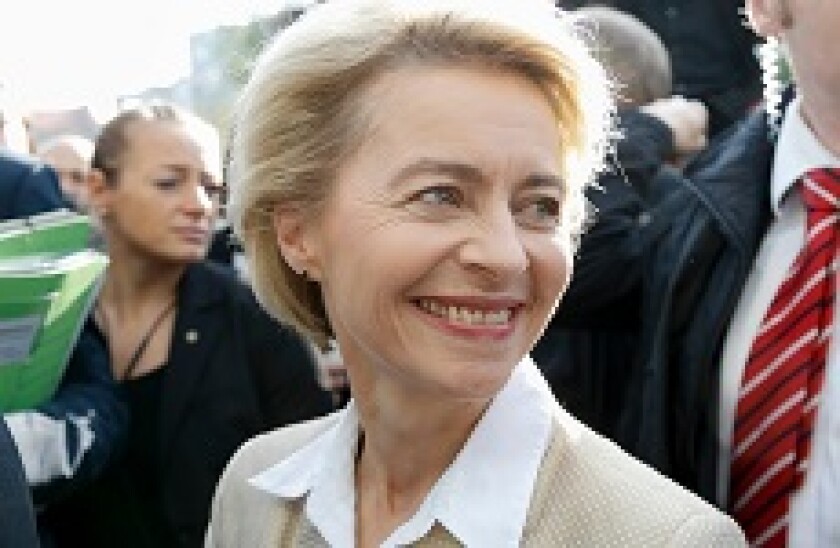Europe is likely to be the first laboratory in which a large scale test is made of the Green New Deal — a political idea attracting attention around the world, from the US to Africa. Ursula von der Leyen, incoming European Commission president, has made a gutsy opening bid, though some are not expecting much to come of it.
The idea unites two urgent needs: massive investment to turn the economy green and the Just Transition — ensuring these wrenching changes do not impoverish anyone.
Already there are examples of social strife resulting from climate change and the response to it. The Arab Spring in 2011 is widely attributed in part to food price rises caused by droughts in Russia harming the grain crop.
“We’re not going to have sustainable economic development if we’re not aware of the climate,” said Helen Mountford, vice-president at the World Resources Institute in Washington. “It poses a real, material risk to the economy. You do need to address climate change, both mitigation and adaptation. But we’re not going to achieve our climate goals if we do it in a way that exacerbates poverty.”
A Green New Deal is a package of policies addressing environmental, social and economic needs together.
The biggest attempt is von der Leyen’s ambitious pledge to introduce, in her first 100 days in office, a European Green Deal to make Europe carbon-neutral by 2050. She promises tougher carbon pricing, a carbon border tax, a €1tr green investment plan, new green financing and industrial strategies and a Just Transition Fund.
Othmar Karas, a vice-president of the European Parliament from the Austrian People’s Party, played down near term expectations of the Green Deal, and when asked what Europe needed most, emphasised other priorities such as the Banking Union plan. He said it was important to “wait for the details” of the Green Deal.
Others in the EU system are enthusiastic. In a speech at an event in Washington on financing the energy transition, Werner Hoyer, president of the European Investment Bank, said that von der Leyen "in her difficult speech as candidate to be president of the European Commission had to be ambitious to get support." She had called for the EU energy transition policy to be stepped up from a 40% reduction in greenhouse gas emissions by 2040 to net zero by 2050. This was supported by 24 out of 27 member states, Hoyer said.
"We must not forget those countries which are less well advanced on the road to the low carbon economy," Hoyer said. "They have serious problems. This is something we must take a lead on. We are fully aware some regions are heavily dependent on fossil fuels - we need to focus not only on energy security and supply but on jobs and growth. We stand ready to develop new products and ideas to make this a reality."
Supporters have lots of examples of policy win-wins. British Columbia imposed a carbon tax in 2008, but has used revenues to cut other taxes. “Low income and middle income families are better off with the carbon tax than without it,” said Mountford. “It shows a way we can use climate policy in a way that can actually address inequality.”
Investing in public transport in developing countries is another example. It can cut carbon emissions, boost the economy by making travel faster and more efficient, reduce air pollution, and save workers money and time commuting, all at once.
Mountford argued that by investing in the green economy, the world could raise global GDP by $26tr between now and 2030, while creating 65m low carbon jobs and avoiding 700,000 deaths from air pollution.
But there are challenges. “Governments are often very siloed, ministry by ministry,” said Mountford. “And a lot of the tools we have are not well equipped to look at things together. Fiscal and macroeconomic models don’t look at the environment. If we use natural resources, or if we have more traffic in Jakarta or Delhi, they count it as a benefit.”
Measures do not have to come from government, however. Enel, the power company, has to close 23 power plants in Italy. “They started to have dialogues with workers, unions, local communities, to help them find jobs elsewhere in the company,” said Mountford. Enel tried to put renewable power plants into the same communities, and when that was not possible has teamed with universities to set up tech hubs.
"The market is moving away from coal," Mountford said, arguing that in many countries renewable energy was now cheaper, even without subsidies. "If we get mass unemployment as a result, of course people get upset and are going to lobby for support for coal. But that's not the solution - it's just delaying things for a few years more."
